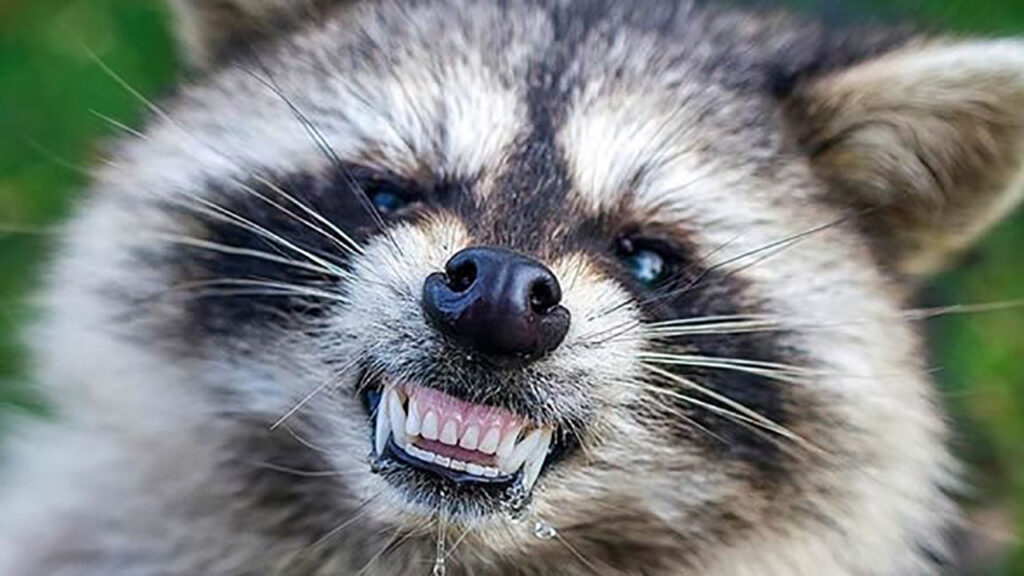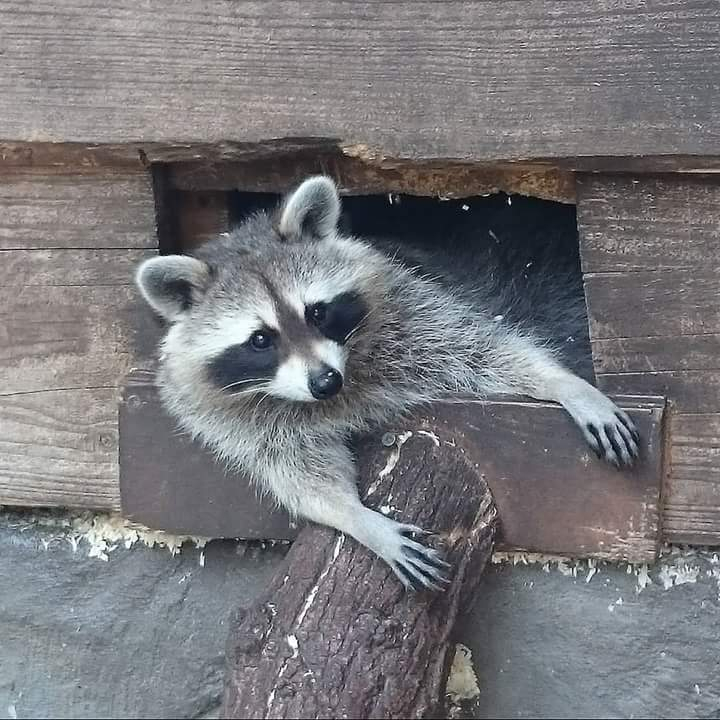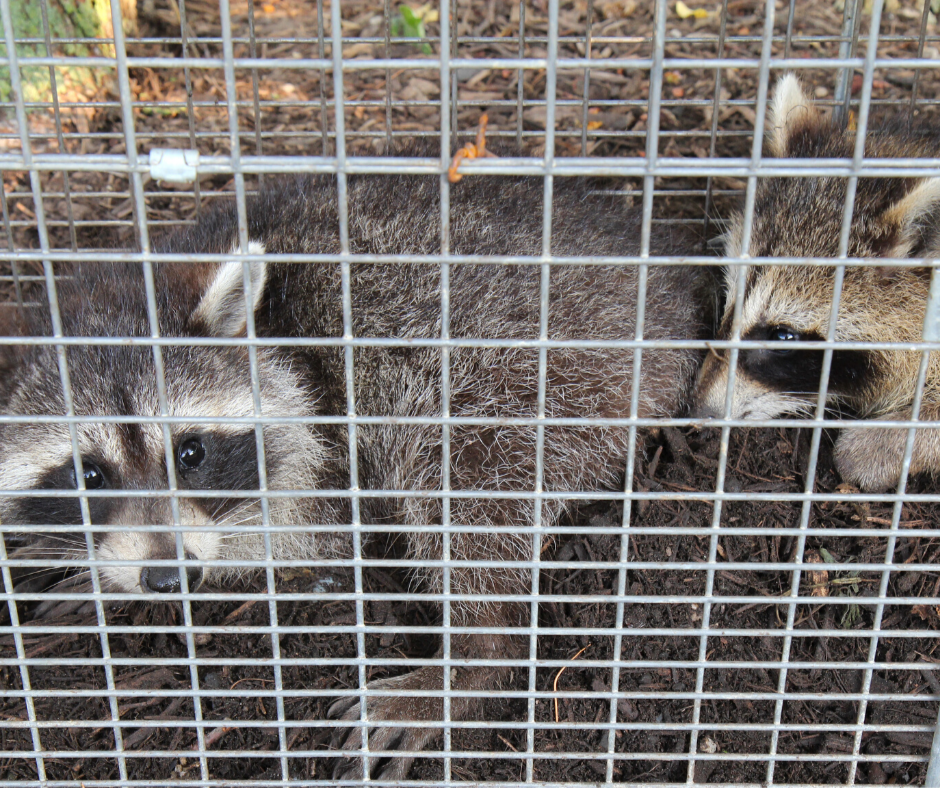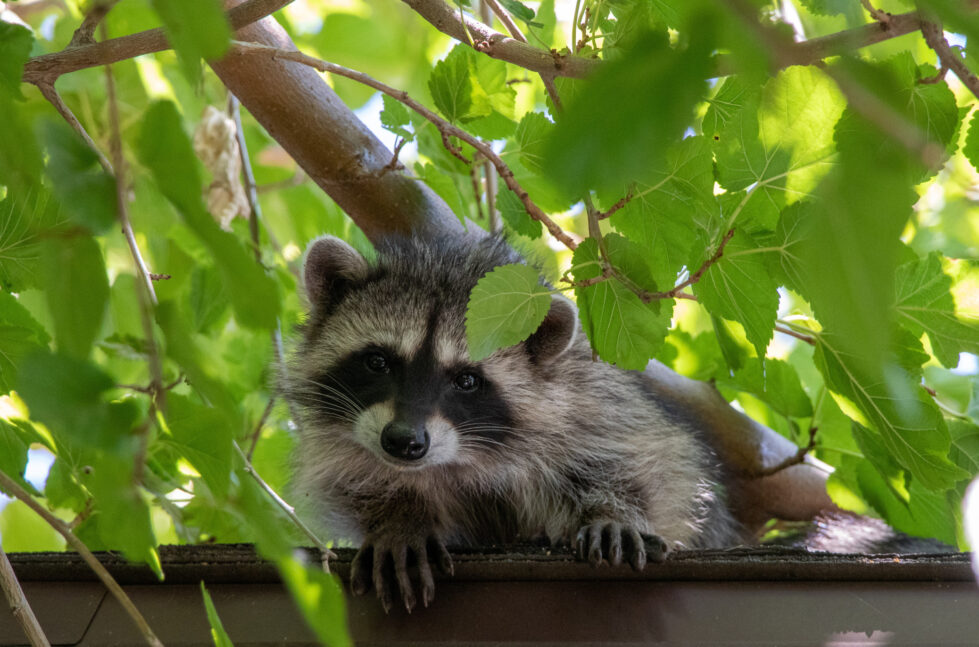Raccoons are a common wild animal in the United States. They’re intelligent, resourceful, and opportunistic creatures that often find their way into homes, garbage cans, or yards. If you’ve ever had to deal with raccoons before, then you know how challenging they can be to get rid of.
In this blog post, we’ll go over some of the most popular methods to get rid of raccoons.
A hungry forager and a potentially destructive invader lurk behind that charming, disguised face. Unfortunately, there are rarely any certainties when dealing with wild animals. But if you’re serious about getting rid of raccoons on your property, you can’t go wrong with the tips provided here in the article.
Use Caution Around Raccoons
So, you’ve moved into a new home only to discover that the attic is infested with raccoons, or you have frequent raccoon visitors at night. Don’t be fooled by their cute, fuzzy features. Raccoons can be a real pain in the neck in and around your house.
When confronted, these bushy-tailed, trash-eating, destructive creatures are known to be downright mean and nasty. Cute raccoon videos you see on YouTube and Instagram are not true representations of typical raccoons. Raccoons are wild animals and will act accordingly.
Raccoons can be aggressive and might bite anyone — including family, pets, strangers, and other animals. Adult raccoons, when not domesticated, can become aggressive as young as six months old. Some raccoons may be curious and used to people, especially if they are being fed (don’t do this!), while other raccoons may be scared and flee when approached.

When dealing with raccoons, you must use extreme caution due to the animal’s unpredictable and sometimes violent disposition. These bandit-like animals have strong, sharp teeth and claws, which are often disease carriers, like rabies and roundworm, so getting touched by one could get you in trouble.
Let’s have a look at the problems raccoons can create.

How to Tell You Have a Raccoon Problem
So, how do you know if you’ve got a raccoon problem? If there is a significant pest problem in and around the home, most homeowners may see a raccoon at some point. Here are a few tried-and-true pieces of evidence that you might have raccoons infesting your attic, garage, or yard — three of the most typical sites where homeowners find raccoons.
Trash strewn all across the yard – Does it appear like someone (or something) has been mucking around with your garbage? You may have a raccoon problem if the lid of the garbage can is open and there is food and trash strewn around the yard.
Strange noises in the attic – Does your attic sound like a tiny child is rushing around? Raccoons can be found hiding in a variety of settings, but attics seem to be their preference. Hearing a lot of noise – especially at night – is one indicator that you have an unpleasant guest upstairs. Raccoons are nocturnal animals, so you’ll probably hear them coming and departing throughout the night.
Apparent evidence – If a raccoon lives in and around your property, there may be plenty of visible proof. Feces, claw marks, and nesting woodpiles are frequently visible outside your house. Beams, insulation, wiring, and walls may have been chewed up inside the house. A raccoon may have scratched and clawed your floors and walls in certain sections of the attic. Another visible clue that you have a raccoon in or around the house is the paw prints.
Best Methods to Get Rid of Raccoons Around your Home
Seal the Chimney
One of the most popular ways for raccoons to gain access to a property is through the chimney. As a result, we strongly advise wildlife and raccoon exclusion with chimney screens or sealing off a chimney that is no longer in use. Sealing off your chimney will not only keep unwanted pests and animals out, but it can also save you the extra money spent on heating and cooling during the year.
Clean up the Yard and Trees
Don’t let the trees and shrubbery around your house become overgrown in any way. Raccoons (and other pests) can easily climb into your attic area or chimney if branches touch the house – especially the roof. Maintain your yard by trimming tree branches regularly.
Install a Motion Detector Light
Raccoons are nocturnal species that dislike bright lights, especially when they are shining on them. Motion detector lighting around the house is indeed a great investment, especially near your roofline, to keep raccoons out of your yard. Another smart approach to keep raccoons off your land is to install lighting around trees.
Play Loud Noises
Raccoons aren’t great fans of loud noises, which comes as no surprise. Placing a radio or speaker in the attic that plays loud music is one approach to drive them out. Unfortunately, this may not be enough to deter them from returning.
Drive Them Away with Foul Smells
What smells do raccoons hate? Raccoons have a highly developed sense of smell. We recommend that you take advantage of this. To get them out of your property, place anything with a strong stink in and around your attic or under the chimney; Hot pepper, garlic, peppermint oil, onion, and Epsom salt are a few scents used to repel raccoons. Ammonia is one smell that raccoons despise. To scare the raccoons out of the attic, put the ammonia in a bowl or use an ammonia-soaked rag.
Remove Food Sources
Collect any fallen fruit from trees, and don’t let overripe produce rot in vegetable gardens. If you’re going to compost food waste, ensure the bin lid is locked. Bring bird feeders inside at night or hang them in an inaccessible location for raccoons.
Keep your Garbage Cans Protected
Raccoons adore garbage and will eat just about anything they can find inside. A tight-fitting trash can will keep raccoons from digging through your rubbish. We propose putting anything heavy on top of the garbage can, such as a large boulder, or tying it with a rope. To help prevent odor, use bulky trash bags and double-bag meat waste products. It’s also a good idea to throw your trash out later in the day when the trash pick-up arrives.
When to Call a Wildlife Professional
The local animal control officer in your city, unfortunately, will not be creeping into your attic to install traps for raccoon removal. Instead, it’ll be a wildlife removal company or pest control job that you’ll have to hire. Many wildlife removal professionals will trap the raccoon, remove it, and then fix the hole to prevent further entry.

It’s time to call in the professionals if the raccoon problem has gotten out of hand or if you suspect the raccoons are sick and spreading a harmful disease. If you need assistance finding a professional pest control provider, you can search online and find the best pest removal service in town.
Local pest control or wildlife removal companies can catch and remove the raccoon for you, providing the experience and equipment that you may not have.
Another major benefit of hiring a professional is that the company will take care of the animal’s relocation, which is normally done at the customer’s request.
Some companies are no-kill, and their business philosophy is to not harm animals. Others may trap raccoons and kill them but then release them if the client requests it. Make sure you know the outcome before hiring.
Hiring a wildlife removal expert also means you won’t be left scrambling for a state permit while the raccoon destroys your attic.
Raccoon Removal Experts
Raccoons are a common pest in many regions of the country and can be difficult to manage without professional help. The best way to get rid of them is by calling our team at Professional Wildlife Removal today for an estimate on how we might be able to remove these pests from your property quickly, safely and humanely.
We’ve been serving homeowners with success stories that show just what we’re capable of when it comes to dealing with animal control problems–no matter where they originate or how complicated they seem.

